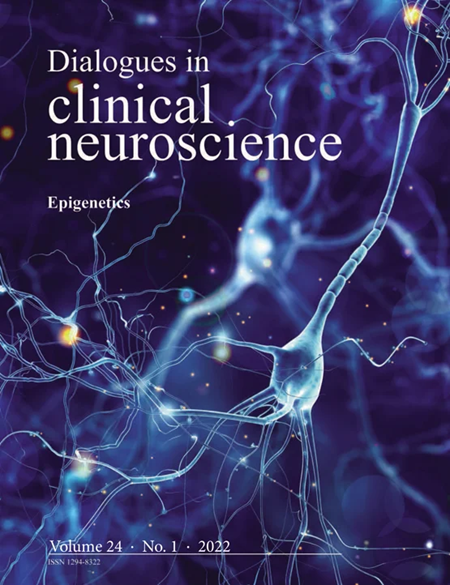治疗大脑的“系统方法”:发展精神药理学的机遇
IF 8.3
2区 医学
Q1 Medicine
引用次数: 2
摘要
人们越来越认识到早期生活对心理健康长期规划的重要性。然而,目前大多数精神药物都是针对成年患者的,并且缺乏旨在恢复异常神经发育轨迹的早期精神药理学方法。早期的心理药物干预面临着在高度可塑性系统中操作的挑战,需要对神经发育机制有全面的了解。最近,系统生物学方法有助于从一个新的角度理解神经可塑性机制,将其解释为来自不同系统的复杂和动态信号网络的结果。这种方法为发育精神药理学创造了机会,提出了可以通过在早期干扰神经可塑性来调节发育过程的新靶点。我们将讨论两个相互关联的系统——免疫和肠道微生物群——它们调节神经发育,并在临床前研究中被认为是预防大脑异常发育的新靶点。本文章由计算机程序翻译,如有差异,请以英文原文为准。
The “systems approach” to treating the brain: opportunities in developmental psychopharmacology
The significance of early life for the long-term programming of mental health is increasingly being recognized. However, most psychotropic medications are currently intended for adult patients, and early psychopharmacological approaches aimed at reverting aberrant neurodevelopmental trajectories are missing. Psychopharmacologic intervention at an early age faces the challenge of operating in a highly plastic system and requires a comprehensive knowledge of neurodevelopmental mechanisms. Recently the systems biology approach has contributed to the understanding of neuroplasticity mechanisms from a new perspective that interprets them as the result of complex and dynamic networks of signals from different systems. This approach is creating opportunities for developmental psychopharmacology, suggesting novel targets that can modulate the course of development by interfering with neuroplasticity at an early age. We will discuss two interconnected systems—the immune and gut microbiota—that regulate neurodevelopment and that have been implicated in preclinical research as new targets in the prevention of aberrant brain development.
求助全文
通过发布文献求助,成功后即可免费获取论文全文。
去求助
来源期刊

Dialogues in Clinical Neuroscience
Medicine-Psychiatry and Mental Health
CiteScore
19.30
自引率
1.20%
发文量
1
期刊介绍:
Dialogues in Clinical Neuroscience (DCNS) endeavors to bridge the gap between clinical neuropsychiatry and the neurosciences by offering state-of-the-art information and original insights into pertinent clinical, biological, and therapeutic aspects. As an open access journal, DCNS ensures accessibility to its content for all interested parties. Each issue is curated to include expert reviews, original articles, and brief reports, carefully selected to offer a comprehensive understanding of the evolving landscape in clinical neuroscience. Join us in advancing knowledge and fostering dialogue in this dynamic field.
 求助内容:
求助内容: 应助结果提醒方式:
应助结果提醒方式:


